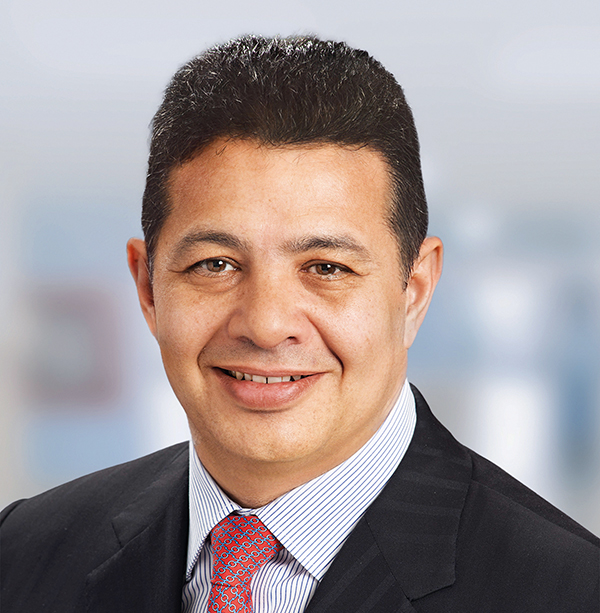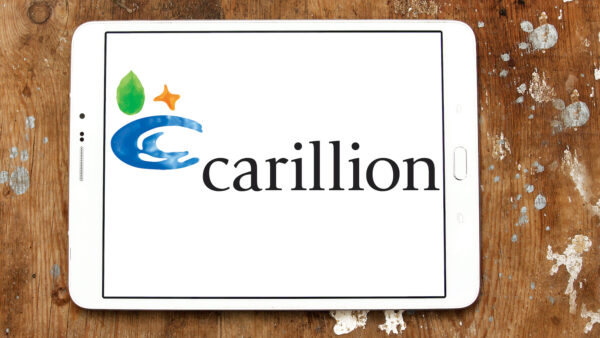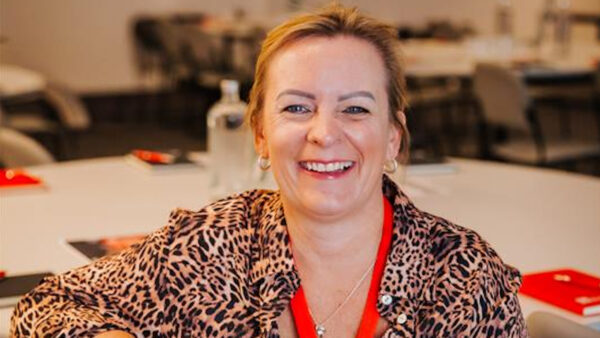
Hill International is one of America’s largest construction consultants. As the US continues to grapple with the pandemic, CEO Raouf Ghali talks to David Rogers about the potential impact of the US’s $1.2tn bipartisan infrastructure bill
America’s politicians have finally addressed the issue of crumbling infrastructure. The American Society of Civil Engineers estimates that an extra $3tn needs to be spent over the next 10 years to modernise the country’s transportation, power and water systems, and $1.2tn of that was provided by last November’s Infrastructure Investment and Jobs Act.
Raouf Ghali, chief executive of Hill International, which provides construction and programme management services in the US and around the world, says this is a big turnaround after the Trump administration’s failure to keep its funding promises, which disrupted the infrastructure investment process. By contrast, President Biden’s act has been well received by the industry, which is now waiting to find out how the headline figure will be converted into individual projects.

Raouf Ghali CV
Joined Hill International in 1993
CEO since 2018
President and COO, 2015-2018
President of Hill’s Project Management Group (International), 2005-2015
Senior VP, 2001-2004, and VP, 1993-2001
BS in Business Administration/
Economics, MS in Business Organisational Management from the University of LaVerne
“If the government wants the money to be disbursed quickly, it may be put into extensions and additions to the scope of existing contracts rather than doing whole new procurements,” Ghali says. “But even so we’re not going to really see the money flowing through communities until the latter part of 2022.”
The federal money, which will be increased 20-30% by local governments, will add $284bn to surface transportation spending, of which $110bn will go on roads and bridges, $66bn on rail and $42bn on air and sea ports. Here, Hill stands to benefit from a number of projects, such as its role on the Amtrak Gateway programme to upgrade the US’s busiest rail corridor between Newark in New Jersey and Penn Station in New York City. Ghali adds that aviation is also likely to be a hot sector.
What no one has worked out yet is what happens when this big increase in demand hits longstanding capacity constraints in the labour market and supply chains. As head of a professional services business, Ghali is sanguine about this for now. He says the rash of consolidations in the US consultancy sector had led to cuts in payrolls, which will make recruitment easier than it might have been for the coming year. Beyond 2022, however, even consultancies will have to work harder to staff their new and expanded projects.
Industrial booms while retail falters
The pandemic also brought a sweeping change in construction markets. The shift to home working and online shopping combined to hit the commercial sectors. “Demand for shops and offices has changed tremendously,” Ghali says. “I think there’s going to be a lot of revaluation and repositioning of assets on those two fronts. The Amazons of this world are shooting up and I’ve never seen Fifth Avenue in New York with so many [storefronts] emptied out.”
By contrast, the industrial sector enjoyed rapid growth, and companies that were alive to market shifts were best able to weather the pandemic. “As far as design engineering and project management goes, the architectural engineers that were fast on their feet really benefited. They had staff working from home and overheads were way lower and the nimble ones went to the industrial sector and performed well and actually made up a lot of the losses,” Ghali says.
One of which turned out to be Hill. “We were fortunate enough to have most of our projects deemed necessary construction, so we didn’t have a lot of stoppages. We had probably 8-10% of our workforce being furloughed. With exception of industrial, new procurement was non-existent in 2020 and we suffered headwinds in the first two quarters of 2021, then we saw a lot of activity.”
Hill reported year-on-year increases of 34% in operating profit and 60% in net income for its third quarter, the result of wins on the Metro Gold Line project in southern California, a rail project in Kosovo and airport deals in Miami and Hill’s home town of Philadelphia.
Happy at home, but…
The pandemic prompted a shift to home working, which taught Hill two lessons, Ghali says. One is that people generally are just as efficient working from home and are happier being in control of some of their time. Balancing that is the importance of face-to-face interactions to nurture esprit de corps.
“In the long term, I think we’re going to save some money on our office real estate, but we need the people who go out there [to] say ‘we are here, we are the best, we can do this’, and they need to know that the people back in the office have their back. If they never see them, they’re going to lose that feeling.”










